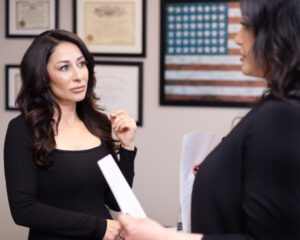Understanding Car Accidents
Car accidents are an unfortunate reality of driving. They can result from various factors such as distracted driving, speeding, weather conditions, and mechanical failures. Statistics reveal that millions of accidents occur annually, leading to injuries, fatalities, and substantial financial losses. Understanding these common causes can help you stay vigilant on the road.
Immediate Actions Post-Accident
The moments following a car accident can be chaotic. It’s crucial to stay calm and focused. Begin by ensuring your safety and the safety of others. Turn on your hazard lights to alert other drivers. If the accident is minor, move vehicles to a safe location to prevent further collisions.
Checking for Injuries
Assess yourself and your passengers for injuries. Even if injuries seem minor, it’s essential to seek medical attention. Some injuries, like whiplash or internal damage, may not be immediately apparent but can become serious if left untreated.
Moving to Safety
If possible, move your vehicle to the side of the road or a safer area. This action helps prevent additional accidents and keeps you out of harm’s way. Use cones or flares from your emergency kit to warn oncoming traffic.
Calling Emergency Services
Contact emergency services immediately. Provide them with your location, a description of the accident, and information about any injuries. Timely assistance can be crucial, especially in severe accidents.
Documenting the Scene
Thoroughly document the accident scene. Take clear photos of all vehicles involved, the surrounding area, and any visible damages. Note details such as weather conditions, road markings, and traffic signs.
Exchanging Information
Exchange contact and insurance information with the other driver. Be sure to get their name, phone number, address, driver’s license number, license plate number, and insurance details. Respect privacy and only share necessary information.
Talking to Witnesses
If there are witnesses, collect their statements and contact information. Witnesses can provide crucial third-party perspectives that may support your version of events.
Interacting with the Other Driver
Stay calm and avoid discussing fault with the other driver. Anything you say can be used against you later. Focus on exchanging information and ensuring everyone’s safety.
Filing a Police Report
In many jurisdictions, filing a police report is mandatory for significant accidents. The report provides an official account of the incident, which can be critical for insurance claims and legal matters.
Notifying Your Insurance Company
Report the accident to your insurance company as soon as possible. Provide them with accurate details and cooperate fully. Understanding your policy can help you know what to expect in terms of coverage and claims processing.
Legal Considerations
Knowing your legal rights is essential after an accident. If you’re unsure about any aspect, consider consulting an attorney. They can guide you through the process and help protect your interests.
Handling Emotional Aftermath
Accidents can be traumatic. It’s normal to experience a range of emotions afterward. Seek support from friends, family, or professionals if needed. Practicing stress-relief techniques can also be beneficial.
Common Mistakes to Avoid
Avoid common pitfalls such as admitting fault, failing to document the scene, or neglecting to seek medical attention. These mistakes can complicate insurance claims and legal proceedings.
Preparing an Emergency Kit
Having a well-stocked emergency kit in your vehicle is crucial. Include items like a first aid kit, flashlight, flares, water, and basic tools. Regularly update your kit to ensure everything is in working order.
Understanding Insurance Policies
Familiarize yourself with your insurance policy’s coverage. Knowing what is covered and the claims process can make dealing with the aftermath of an accident less stressful.
Post-Accident Vehicle Inspection
After ensuring everyone’s safety, assess your vehicle for damage. Take it to a professional for a thorough inspection. Understanding the extent of the damage can help with repair decisions and insurance claims.
Long-term Health Monitoring
Monitor your health in the weeks and months following the accident. Some injuries may manifest later. Regular check-ups and being attentive to changes in your health are important.
Learning from the Experience
Reflect on the accident to identify ways to improve your driving habits. Consider defensive driving courses or other safety measures to prevent future incidents.
FAQs
What information should I exchange with the other driver? Exchange your name, phone number, address, driver’s license number, license plate number, and insurance details.
Should I admit fault at the scene? No, avoid admitting fault. Focus on ensuring safety and exchanging information.
How soon should I contact my insurance company? Notify your insurance company as soon as possible to report the accident and initiate the claims process.
Do I need a police report for all accidents? In many places, a police report is required for significant accidents. Check local laws for specific requirements.
How can I cope with the emotional impact of an accident? Seek support from loved ones or professionals, and practice stress-relief techniques.
What should be included in an emergency kit? Include a first aid kit, flashlight, flares, water, and basic tools. Regularly update your kit to ensure everything is in working order.
Conclusion
Being prepared and knowing what to do immediately after a car accident can make a significant difference in handling the situation effectively. By following these steps, you can ensure your safety, protect your rights, and manage the aftermath with confidence.


